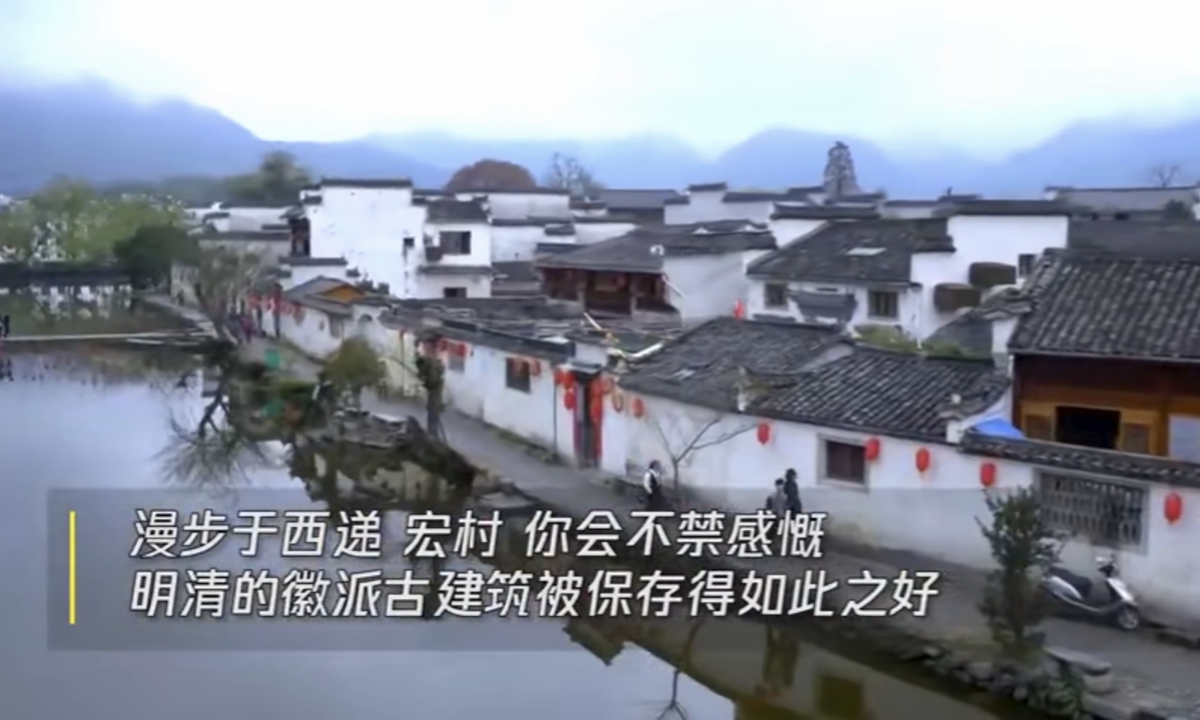ARTS / CULTURE & LEISURE
Chinese netizens criticize illegal ancient house trade

Old buildings in the city of Huangshan, East China’s Anhui Province Photo: Snapshot of Sina Weibo
Chinese netizens are calling for strict punishment and more measures to be taken to protect ancient buildings after a video showing people sell parts of ancient houses built during the Ming Dynasty (1368-1644) and Qing Dynasty (1644-1911) went viral on Chinese social media on Sunday.
According to the video released by Kankan News, due to expensive restoration costs, many locals in Huangshan City, East China's Anhui Province, who lived in Ming and Qing houses have sold their homes to land agents in order to move into better residences.
However, the land agents have been selling parts of these purchased homes to rich collectors and businessmen who use the parts as decorations for their hotels, scenic spots or private clubs.
Since many of the old buildings in Huangshan were built using a mortise and tenon technique instead of being nailed together, they can be disassembled and assembled repeatedly, which makes it it possible to move entire houses to other provinces or even other countries.
"They are like furniture that can be delivered to anywhere in the world," said one local businessman in the video, adding that an old house with good wooden material can sell more than 5 million yuan ($771, 510).
However, according to the Protection of Ancient Houses in Anhui Province regulation, civil buildings with historical value built before 1911 cannot be disposed of privately, and owners and residents of those ancient dwellings must abide by relevant national laws and regulations.
The existence of this dark industry chain has angered many Chinese netizens, with many criticizing the local government "for having done nothing."
"I couldn't believe it when I read the news! Those buildings are all cultural treasures, but how can there be such an industrial chain? It would be a big crime if they were sold overseas," one Chinese netizen commented on Sina Weibo.
"Selling old dwellings is illegal," Shen Binti, a lawyer based in Beijing, told the Global Times on Sunday.
According to Shen, increasing punitive measures might be an effective way to prevent such acts.
"China has been paying attention to protecting the traditional culture in recent years. Cultural promotion and education for local residents about the law are also very important," said Shen.
The video shows a warehouse with piles of wood and wooden structures. The owner is heard saying that if they are not disassembled, they may be recognized as cultural relics.
Tong Xingsheng, an expert in ancient building restoration based in Beijing, told the Global Times that China's long history means it has countless ancient buildings, which require more professional heritage experts in each province and region to help take care of them. He emphasized that it is important that cultural relic identification rules be established as soon as possible.
He added that Beijing is a global tourist spot mainly due to its ancient historical buildings and traditional culture.
"The demolition and relocation of ancient buildings obscures history, which is a big issue related to cultural identity and cultural security."

